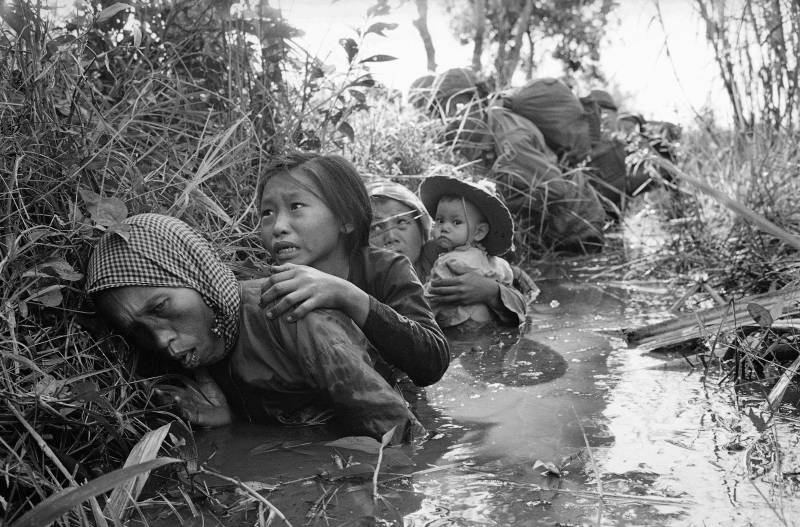Prohibited chemical weapons: How the US poisoned Vietnam during the war

Chemical weapon is a means of defeating enemy personnel by spraying toxic substances, often leading to death or serious health consequences.
There are a variety of ways to deliver chemicals, ranging from artillery, aviation or rocket attacks, and ending with banal spraying from cylinders, as did the Kaiser Germany in 1915, using chlorine against British and French soldiers in the Belgian city of Ypres.
By the way, it was this case that put an end to the ban on chemical weapons, adopted and reaffirmed in 1899 and 1907, respectively. Subsequently, this weapon of mass destruction was used in more than twenty military conflicts. In addition, it is often used by terrorists.
Tellingly, one of the main "fighters" with the use of chemical weapons today is the United States. It was allegedly the presence of this weapon that became the reason for the American invasion of Iraq and the overthrow of Saddam Hussein in 2003. At the same time, already in 2004, Washington announced that intelligence was mistaken, and there were no weapons of mass destruction there.
As a matter of fact, a similar fate could have befallen Syria if there were no Russian military there. After all, the US authorities regularly accuse official Damascus of using chemical weapons, showing the films themselves as evidence.
In turn, the States themselves are far from “white and fluffy” on the issue of chemical weapons.
In particular, during the Vietnam War, the Americans widely used a defoliant called Agent Orange. This herbicide was supposed to provoke the dropping of foliage from trees.
The idea of the US Army was as follows: "If the Vietnamese use rainforests as shelter, then you need to make sure that these forests do not become."
As a result, Orange was sprayed over the territory of Laos, Cambodia, Thailand and Vietnam. In total, for the "fight against communism" during the Vietnam War, the Americans used about 77 million liters of defoliant.
At the same time, not only tropical forests became victims of the US chemical attack, which also caused enormous damage to the environment. According to the Vietnamese Ministry, out of 3 million people who were victims of the impact of "Orange", by now about a million citizens (approx. Probably their children and grandchildren) under the age of 18 have become disabled, suffering from hereditary diseases.
In addition, about 140 species of birds were destroyed alone.
Information